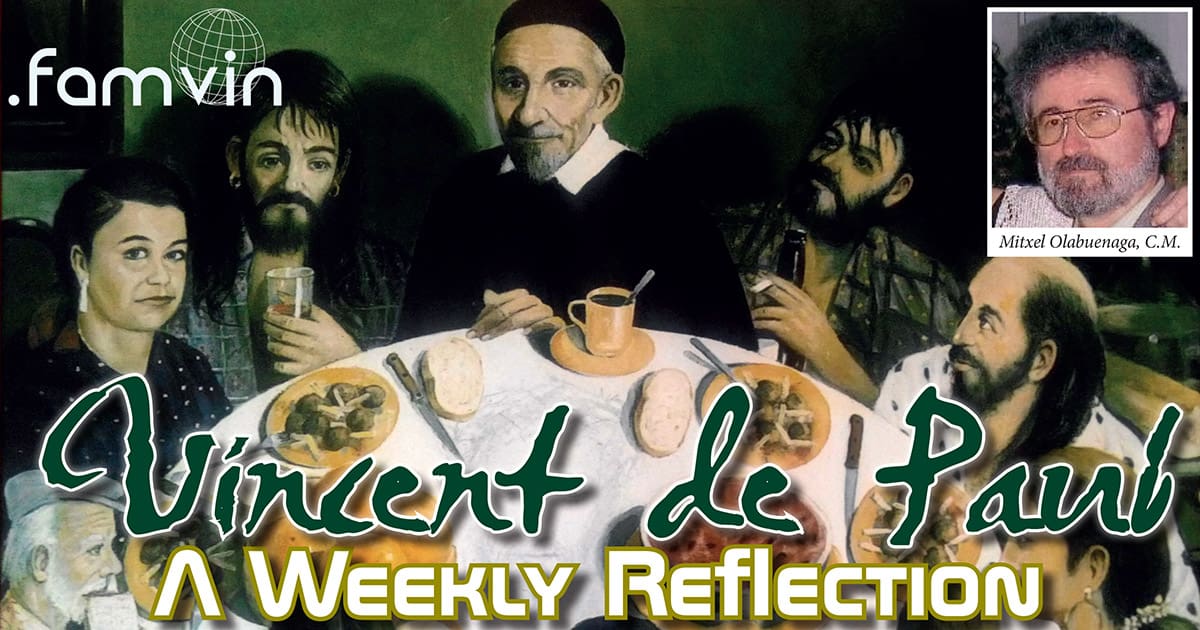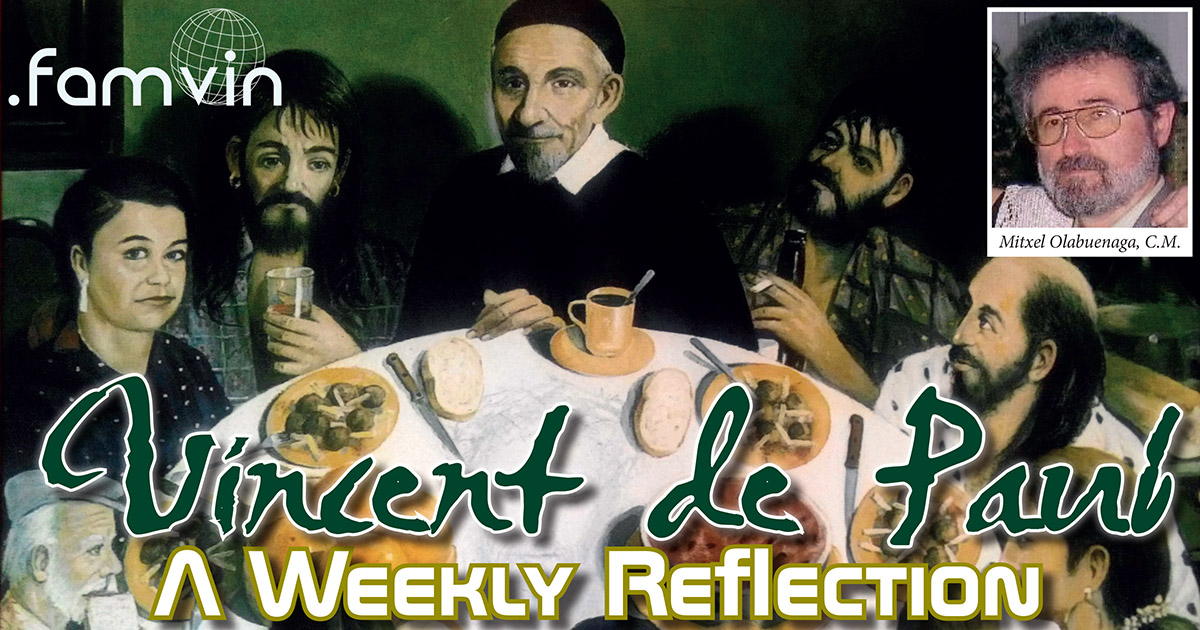From the Greatest to the Least – God is There • A Weekly Reflection with Vincent
“In addition to this general work, He toils with each individual: with the craftsman in his shop, with the woman in her household, with the ant and the bee to do their collecting, and He does so constantly and continually. And why does He labor? For us, dear Sisters, only for us, to preserve our lives and to procure for us everything we need.” (CCD:X:conference 41).
Vincent de Paul
Reflection:
- On several other occasions Mr. Vincent referred to “God the worker,” to God permanently hardworking, artisan, carpenter, shipbuilder, builder … To the generating God (together with the Son) of the Trinity, of the Universe. It is time, apparently, to make Him a little closer, more smelling of sheep. For that, in short, is what matters to the flock, to the human race.
- A “little flock” in which the craftsman, the woman, the ant and the bee are included. Knowing a little about Mr. Vincent we could ask ourselves if his selection of this little group was “by lot” or “intentional.” It is surprising that the man chosen is an artisan, that the woman is a generic, that from the terrestrial animals is chosen the most insignificant (the ant) and from those who fly the bee (example of an enterprising work).
- But it is not just the “who” but the “how.” The text gives a thesis of modernity and quality (this is not my idea). The God that Mr. Vincent announces accompanies the artisan “in his workshop” (place where he works), the woman “in her task” (obviously the house), the ant and the bee “in the collection” (also a form of work). In other words: God is a working God who accompanies each one in his particular work. And he does it “constantly and continually.“
- And why so much work, so much accompaniment of the work of each day, so much protectionism? Vincent is clear: “for man, for man alone, to preserve their lives and and to procure for them everything they need.” What remains is a dignified “father-mother” figure: a God who creates, a God who preserves the created, a God that covers all kinds of needs. Thankfully, in his vision, he sent the Son (Jesus Christ) to pay for the “broken dishes” in the house and with his Incarnation became united again with the craftsman, with the woman, with the bee and with the ant. Thank God!
Questions for dialogue:
- How do we update the vision that Mr. Vincent has of God, eternally hardworking? Is this update required?
- Do we feel permanently accompanied by God? Do we let ourselves be responsibly accompanied?
- Do we care about the “with who” and “how” in our jobs?
- Are we close to human beings, especially the needy, to walk along with them?
- Are our communities welcoming spaces for those who come?
Mitxel Olabuenaga, C.M.
![]() Mitxel.OlabuenagaOrnes
Mitxel.OlabuenagaOrnes
Tags:










0 Comments